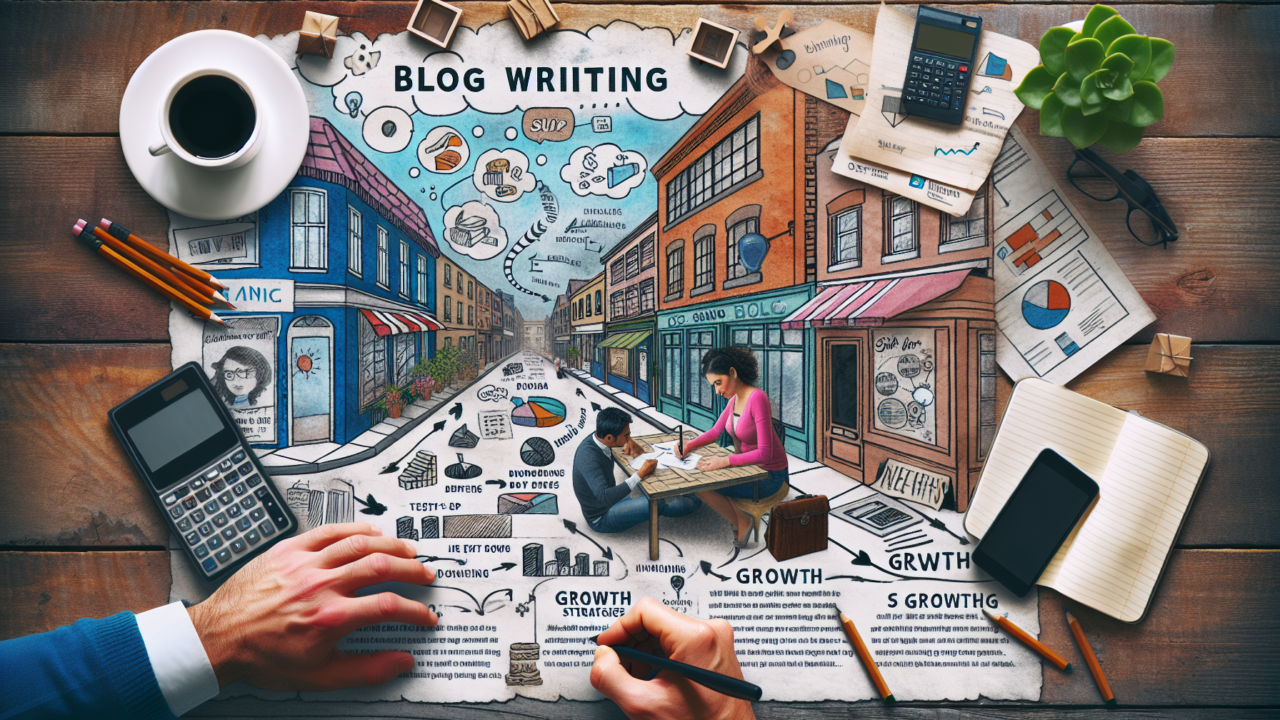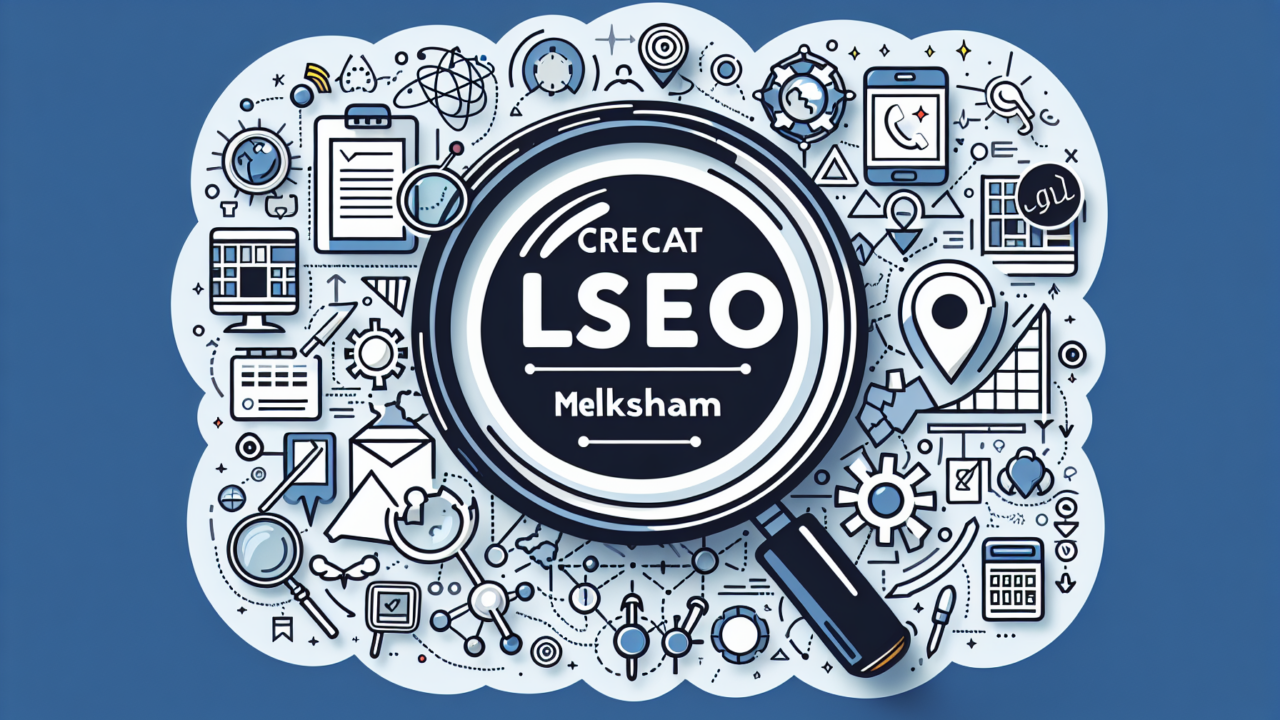Serving local customers for over 25 years.
Trusted by local business for reliable website design, SEO services and Digital Marketing in Somerset, Dorset, Devon, Wiltshire and Gloucestershire. 30 years of online marketing experience across the world.
Table of Contents
ToggleThe Top Marketing Trends of 2024
Learn about marketing in 2024 with predictions on AI integration, the rise of short-form video, user-generated content initiatives, and the significance of genuine branding.
Regardless of your area of expertise, your marketing campaigns' success is vulnerable to cultural shifts due to the inextricable bond between marketing and consumer behaviour.
In addition to the tried and proven methods, including some trendier aspects in your marketing strategy can help optimise it for the modern consumer.
Whether you're interested in social media, digital, brand, or any other type of marketing, this article will expose you to the leading trends for 2024.
Not all of these trends will apply to your target demographic, so it's essential to remember them as you review them.
If you want to know your target audience and how to approach them, the University of Pennsylvania suggests taking Introduction to Marketing, a crash course in marketing.
Essential Marketing Trends To Watch In 2024
We reviewed many marketing reports and studies from many fields to identify the most significant trends in marketing.
When formulating your marketing strategies, be mindful of the following trends:
- Artificial intelligence (AI) is enhancing the efficacy and efficiency of operations.
- Short video content, such as on TikTok, drives social media tactics.
- User-generated content (UGC) improves brand recognition.
- Building trust with consumers is a goal of community outreach and authentic branding.
- There is still editorial content of a high standard.
- Case studies still drive brand recognition and sales lead generation.
- Optimisation tactics for search engines are evolving in response to new search engine features.
- Chatbots powered by AI expand conversational possibilities.

To better understand these trends, let's examine the supporting data for each one separately.
Effectiveness and efficiency are both enhanced by AI.
Marketing is only one of several sectors and roles that will feel the effects of AI developments.
Research from HubSpot's State of Marketing Report 2024 shows that 64% of marketers currently utilise AI and automation, with 38% of those not using AI in 2023 intending to do so in 2024.
Consulting business Gartner also projects that by 2026, 80% of marketing's advanced creative operations will be responsible for enhancing marketing campaigns using GenAI.
Content creation and marketing analytics are two familiar places where AI appears in marketing processes.
Using Genai For Video Creation
Several marketers utilise generative AI (GenAI) at different points in content development to save about three hours of labour per piece of content. 84% say AI makes content creation more efficient, 82% say they produce “significantly more” content, and 56% say their content performs better.
You can use GenAI technologies like ChatGPT or Google Gemini to generate content ideas, create outlines and briefings, compose rough drafts, or even write complete articles.
Analytics in marketing with the help of AI
While data-driven marketing is nothing new, artificial intelligence alters marketers' data sources.
The State of AI at Work, a report by the Work Innovation Lab in 2023, found that 62% of workers are interested in adopting AI for data analytics, and 30% are now utilising it.
AI-powered analytics can help you learn more about your target audience, spot patterns, forecast their actions, and optimise your marketing efforts faster and more accurately than without AI.
The Social Media Plan Is Based On Short Videos
Advertisers are increasingly focusing on reaching the tech-savvy youth by going where they already spend most of their time: watching short videos on platforms like Instagram, YouTube, and TikTok.
According to HubSpot, short videos will witness the most significant growth and have the highest return on investment (ROI) by 2024. 53% of marketers will invest more in TikTok, YouTube shorts, and Instagram reels.
Consumer-Generated Content (UGC) Builds Familiarity With A Brand.
Any material people create and share online concerning your product is considered user-generated content (UGC).
Companies are not collaborating with users to fund or create the material, yet the content style is comparable to that of influencers or affiliate partners.
It's more of a user-generated content model where individuals publish and distribute their content.
While affiliate marketing and traditional influencer marketing are still essential parts of any successful marketing strategy, user-generated content (UGC) quickly replaces them as the go-to method for marketers looking to raise brand exposure without breaking the bank.
Gartner reports that over 80% of consumers think user-generated content enhances product discovery, brand trust, and the overall experience.
Building trust with consumers is a goal of community outreach and authentic branding.
Gartner ranks authenticity as the third-most important value for US consumers. With the rise of AI-generated content in online spaces, it will be crucial for brands to cultivate an authentic voice.
Focusing on emotional connections through community development is the answer for modern marketers.
Marketing platform TINT conducted a study in 2024 that indicated that 70% of marketers think creating a community is essential for client loyalty. Eighty-two per cent of customers say they're more likely to buy new products from a company with an active social media community.
Editorials Of The Highest Calibre Will Continue Unabated
Blog posts, podcasts, and other forms of editorial content will remain a staple of marketers' content strategies for driving engagement, boosting conversions, and establishing credibility as an industry leader.
In 2024, 82% of marketers who participated in the HubSpot poll intend to enhance or keep spending on audio content like podcasts, and 92% intend to do the same with blogging.
Case Studies Boost Both Brand Recognition And Sales Metrics.
Particularly in business-to-business (B2B) marketing, more conventional forms of content marketing, such as case studies, are often employed to raise brand recognition and propel lead creation.
Case studies will still be part of marketing plans in 2024. According to HubSpot research, 26% of marketing teams already use case studies as part of their content marketing strategy, and 87% want to either grow or keep their investment in case studies.
As Search Engines Evolve, Seo Tactics Must Also Adapt
According to Gartner, brands should expect a 50% decrease in organic search traffic to their websites by 2028 due to AI-driven improvements to leading search engines.
Even if things are shifting, according to HubSpot, 92% of marketers still intend to invest more in SEO by 2024.
Search engine optimisation (SEO) teams are not only building historical methods. Still, they are also branching out into video, image, and audio search material to guarantee a good user experience and take advantage of all of Google and Bing's new features.

AI-Powered Chatbots Expand Conversational Possibilities
Customers can get high-quality responses to simple or frequently asked queries via chatbots and virtual assistants.
The development of AI and NLP has made it easier for marketers to create and use these tools in a way that maximises efficiency without compromising client happiness.
Investing more in chatbots is something 58% of marketers intend to do by 2024, says HubSpot.
The User Experience Is Enhanced By personalisation
HubSpot reports that 96% of marketers see an increase in revenue and 96% in repeat business due to personalised experiences made possible by AI.
Personalised product suggestions powered by machine learning or immersive experiences like augmented reality (AR) capabilities that let users see actual products in their surroundings enable businesses to understand consumer tastes, make informed purchases based on data, and boost customer happiness.
Still, this is ground-breaking stuff for online advertising. Although 73% of marketers think personalisation is crucial, HubSpot reports that only 35% of those marketers believe their business offers a personalised customer experience.
New targeting tactics are emerging due to data gathering and privacy policy changes.
Online marketers are aware of the growing demand for customisation and the shifting landscape of data collection and privacy regulations, which will impact their ability to understand their target demographics.
With tech giants like Google and Apple working to eliminate third-party cookies, businesses are looking into first-party data collection strategies.


















49 Comments
Your analysis of the upcoming marketing trends for 2024 brings attention to some incredibly relevant shifts that businesses must consider in the evolving landscape. As we witness rapid advancements in technology, especially with AI, it prompts a reevaluation of how we engage with consumers. The integration of AI isn’t merely a fleeting trend; it’s reshaping the way brands interpret data and personalize experiences on an unprecedented scale. However, I wonder if this push towards AI could lead to a dilution of the authentic human touch that consumers increasingly crave.
Your exploration of the top marketing trends for 2024 sheds light on an increasingly complex landscape where consumer behavior and cultural shifts dictate strategies. It’s particularly noteworthy that you highlight the significance of AI integration and user-generated content (UGC) as key drivers.
I really resonate with the emphasis on genuine branding in your post. It’s become increasingly clear in my experiences that consumers are looking for authenticity over perfection. I recently observed a small brand thrive by showcasing behind-the-scenes content and letting their community feel involved in their journey.
You’ve touched on something that’s really at the heart of this evolving marketing landscape. As consumers become more informed and engaged, their preferences drive brands to rethink their approach. AI integration opens new doors for personalization, making interactions feel more authentic and tailored. It’s fascinating how user-generated content can amplify those genuine connections—when customers share their experiences, it feels less like a marketing pitch and more like a trusted recommendation from a friend.
This exploration of marketing trends for 2024 really highlights the dynamic landscape we navigate today! I find the rise of short-form video particularly fascinating; it seems to encapsulate the way our attention spans have evolved in the digital age. Platforms like TikTok and Instagram Reels have opened up new avenues for storytelling, allowing brands to connect with audiences in engaging, bite-sized pieces.
You make a great point about the complexities in today’s marketing landscape. The blend of consumer behavior and evolving cultural dynamics is truly fascinating. I find the emphasis on AI integration particularly intriguing—it feels like it’s becoming the backbone of many marketing strategies. Just think about how AI can analyze vast amounts of data in real-time, allowing brands to respond more dynamically to shifting consumer preferences. It’s a tool that, if used thoughtfully, can really enhance personalization and customer engagement.
Great points! The balance between leveraging AI and keeping that genuine human connection is definitely a tricky one. Consumers today are pretty savvy; they want personalization but also crave real interactions. It’s fascinating to think about how brands can use AI to enhance those connections instead of replacing them. For instance, AI can analyze data and identify preferences, but it’s the creativity and empathy of humans that can turn that info into meaningful conversations.
You’ve highlighted some really important points about AI’s role in marketing. The way it can sift through data and adapt to consumer behavior is remarkable. I often think about how this blends not just with marketing but also with how we interact as a society. For instance, companies are getting better at tailoring experiences to individual preferences, which can be a game-changer in areas like e-commerce or even healthcare marketing, where personalized communication can significantly impact patient engagement.
This blog post brings to light some essential marketing trends that are becoming increasingly vital as we navigate the changing landscape of consumer behavior in 2024. The mention of AI integration is particularly compelling; it seems like we are just scratching the surface of what artificial intelligence can do for marketing strategies. From predictive analytics to personalized content creation, the potential for AI to shape a more customized consumer experience is fascinating. However, it also raises important questions about ethics and transparency. As marketers, how do we ensure that while we’re harnessing AI, we remain vigilant about safeguarding consumer privacy?
This article highlights some compelling trends for 2024, particularly the rise of AI and user-generated content. I find the interplay between authentic branding and consumer behavior especially intriguing; as consumers become more discerning, brands that prioritize transparency and genuine connection will likely stand out.
You bring up such an interesting point about the intersection of AI in marketing and its broader societal implications. The ability of companies to personalize experiences can really reshape how we connect with brands—and even with each other. In e-commerce, it means not just selling products but providing tailored recommendations that resonate with each shopper’s unique taste.
I found your insights on the marketing trends for 2024 really fascinating, especially the emphasis on AI integration and user-generated content. It’s interesting to see how brands are increasingly leaning on authentic consumer voices to foster genuine connections. This shift reminds me of how companies like Nike and Starbucks have successfully harnessed social media for user-generated campaigns that build community.
You bring up some crucial points about AI in marketing. The integration of AI really does open up exciting possibilities for personalized consumer experiences, but it’s essential to balance that with ethical considerations.
“You’re absolutely right—balancing innovation with ethics is crucial. If you’re interested in exploring how to navigate these challenges while leveraging AI effectively, check out our in-depth guide on responsible AI in marketing!”
https://ezi.gold/emailoctopus
I love how you highlighted the rising importance of genuine branding in 2024—it’s about time authenticity made a comeback! It seems like every other brand is yelling for attention online, and while flashy campaigns have their moment, consumers are getting savvier about spotting the real from the reel (pun intended, thanks short-form video!).
I really appreciate your insights on the marketing trends for 2024! The rise of short-form video feels particularly relevant these days. I’ve noticed how platforms like TikTok have shifted the way brands connect with audiences—it’s all about quick, punchy content that resonates emotionally.
I found your insights on the marketing landscape for 2024 to be particularly compelling, especially as they underline the importance of adaptability in an ever-evolving cultural context. The emphasis on AI integration struck a chord with me. As we have seen over the past few years, AI’s potential to personalize consumer experiences can’t be underestimated. It makes me think of how brands like Netflix utilize algorithms to tailor content recommendations, effectively keeping viewers engaged. This synergy between technology and consumer behavior is an exciting frontier that I believe will redefine how we approach marketing strategies.
Your observations really highlight an essential shift in the marketing landscape. The focus on AI integration and user-generated content is reshaping how brands engage with their audiences, moving towards more authentic and community-driven strategies. This transition makes a lot of sense—consumers are increasingly savvy and can often spot disingenuous marketing from a mile away. They appreciate when brands encourage their voices and experiences to shine through.
I’m glad you found the insights valuable! If you’re interested in exploring more about how brands can leverage AI and user-generated content, check out this resource for deeper strategies and examples.
https://ezi.gold/quillbot
You’ve hit the nail on the head with your thoughts on short-form video. It’s almost as if our brains have been rewired to operate in GIF mode—quick, catchy, and often punctuated by a punchline. The ability of brands to pack engaging narratives into a mere 15 seconds is like magic, isn’t it? It’s impressive how platforms like TikTok and Instagram Reels have transformed storytelling. Gone are the days when we had to invest hours into a good book or movie; now it’s all about those snackable moments.
Absolutely, the shift toward short-form video is a game changer! If you’re eager to dive deeper into how brands can maximize this trend for impactful storytelling, check out this insightful resource.
https://ezi.gold/emailoctopus
I appreciate your thoughts on the marketing landscape for 2024. The dynamic nature of consumer behavior and technological advancements really does call for a flexible approach to strategy. It’s fascinating to witness how AI can personalize experiences in ways we never thought possible. You mentioned Netflix, and it’s such a great example of leveraging data to enhance viewer engagement.
It’s fascinating to see how marketing evolves with cultural shifts, especially with the predicted rise of AI and short-form video. I’m particularly intrigued by the idea of integrating user-generated content initiatives into campaigns. It feels like a natural way to foster community and authenticity, aligning perfectly with the desire for genuine branding.
Ah, the great marketing merry-go-round of 2024! It’s fascinating to see how rapidly the landscape shifts, almost like trying to keep up with my dog’s ever-changing opinions on whether a stick is an acceptable toy. One day it’s “Yes, please!” and the next, it’s “What are you, a barbarian?” But back to your post – I’d love to dive into the intriguing trends you outlined.
This blog post highlights some incredibly relevant trends for marketing in 2024, particularly the emphasis on AI integration and user-generated content. As someone who has been diving into the world of digital marketing, I’ve seen firsthand how these elements can reshape consumer engagement.
You’ve touched on such a crucial aspect of how AI is reshaping not just marketing strategies, but the very fabric of our everyday interactions. The ability for machines to analyze vast amounts of data and adapt to nuanced consumer behaviors is indeed fascinating. It makes me think about how our own preferences might get shaped by this technology over time, especially in a world that’s increasingly focused on personalized experiences.
You’ve really captured the essence of the shift toward short-form video. It’s fascinating how quickly we’ve all adapted to this new way of consuming content. The idea of our brains operating in “GIF mode” resonates with me; I sometimes catch myself scrolling through TikTok and realizing that I’m fully engaged by a story that unfolds in just a few seconds.
You’ve touched on something really important with the interplay between consumer behavior and marketing strategies. As we navigate this fast-evolving landscape, it’s fascinating to see how intertwined our daily lives are with technology. The rise of AI is reshaping not just how brands operate but also how consumers connect with them.
Your insights on the evolving landscape of marketing for 2024 really resonate, particularly the emphasis on AI integration and genuine branding. I’ve seen firsthand how AI tools can enhance customer engagement by predicting consumer preferences and personalizing content. Yet, I believe there’s a delicate balance to strike; while AI can streamline processes, over-reliance might diminish the human touch that consumers increasingly seek.
You’ve touched on such an interesting point about the synergy between technology and consumer behavior. The way brands like Netflix leverage algorithms to personalize the viewing experience is a perfect example of how AI can transform engagement and retention strategies. It makes me think about how this trend isn’t limited to entertainment—retail, healthcare, and even education are embracing similar approaches to meet consumer needs in more tailored ways.
You’re really hitting on something that gets more fascinating as we dig deeper into it. The way we’re interacting with brands today is a whole new ballgame compared to even just a few years ago. I mean, think about how much technology and AI have seeped into our daily lives. It’s like we’re all living in this giant experiment where consumer behavior and marketing strategies are constantly evolving together.
“Absolutely! To dive deeper into this dynamic relationship and explore innovative strategies that bridge the gap between technology and consumer engagement, check out this resource.”
https://ezi.gold/brownbook
I love the analogy with your dog’s whims—it’s such a spot-on reflection of the marketing world right now. It’s true; one moment we’re obsessed with a particular trend, and the next it seems almost outdated or ridiculous. It might come down to the ever-increasing speed of information and how exposed we are to different ideas and values. Social media amplifies this shift, where what was once a niche concept can suddenly seem mainstream overnight.
It’s interesting to see your thoughts on the trends for 2024, especially around AI and user-generated content. Those two areas are definitely shaping how brands will engage with consumers moving forward. The rise of AI tools is making it easier for brands to create personalized experiences, but as you pointed out, this can sometimes feel less human.
“Absolutely, the shift towards authenticity is crucial. If you’re interested in exploring how brands can effectively leverage these trends, check out this insightful resource!”
https://ezi.gold/brownbook
You’ve captured a lot of what I’ve been thinking about as well. The rise of AI and user-generated content really shifts the dynamics of how brands interact with consumers. It’s fascinating to see how authenticity is becoming a currency in itself.
I totally get that feeling—the marketing world is certainly a whirlwind, much like your dog’s fickle tastes. It’s interesting how quickly trends can shift, isn’t it? One day it’s all about sustainable packaging, and the next, it feels like we’re abuzz with AI-driven personalization. Just like your pup’s stick preferences, we seem to be at the mercy of changing whims and fads.
Speaking of ever-changing trends, I just came across a solid guide on local SEO strategies that might be just as adaptable as your pup’s toy preferences; thought you might find it insightful!
‘Local SEO Firm: Your Universal Strategy Guide’
https://ezi.gold/local-seo-firm-your-universal-strategy-guide/.
You’ve nailed it! The shift towards authenticity is definitely refreshing. It feels like we’ve been living in a constant noise machine where brands try to outdo each other with the flashiest gimmicks. But as you pointed out, consumers are getting really savvy at cutting through that clutter and recognizing what’s genuine.
Absolutely! If you’re interested in diving deeper into the art of authentic branding in this noisy digital landscape, check out this resource that offers valuable insights and practical tips.
https://ezi.gold/backlinks
It’s true—keeping up with the marketing landscape feels a lot like interpreting a pet’s whims. One moment, everyone is raving about personalized ads, and the next, it’s all about privacy concerns and how to maintain trust. Your dog’s aversion to certain sticks sounds a lot like consumer behavior; fickle yet fascinating.
You’ve brought up some intriguing insights regarding the marketing landscape for 2024. The emphasis on genuine branding and user-generated content resonates particularly deeply with the current zeitgeist. As consumers continue to seek authenticity, brands that can transparently engage with their audiences will likely come out ahead. For example, I’ve seen brands like Glossier leverage user-generated content to create a sense of community and authenticity that traditional advertising simply cannot replicate.
You’ve highlighted some essential aspects of the current marketing landscape. The interplay between consumer behavior and cultural dynamics does shape so much of what brands must consider today. It’s not just about selling a product anymore; it’s about understanding the environment in which consumers operate and how their preferences are evolving.
Absolutely, the potential of AI in marketing is indeed transformative! If you’re interested in exploring more about how to effectively integrate AI into your strategies for personalized engagement, check out this resource that dives deeper into the topic.
https://ezi.gold/backlinks
This is such an interesting overview of where marketing is headed in 2024! I’m really intrigued by the rise of user-generated content—it’s fascinating how brands are shifting towards more authentic interactions with consumers. I remember a campaign from a smaller brand last year that leveraged customer photos and stories. It really made their marketing feel more genuine and relatable, showing how effective that can be.
You bring up a thoughtful point about the integration of AI and the concern for maintaining that authentic human touch in brand-consumer interactions. As we lean into the power of AI to analyze vast data sets and create personalized experiences, it’s crucial for brands to stay mindful of the connections that truly resonate with people on a deeper level.
“You’re absolutely right about the importance of balancing technology with a human touch. If you’re interested in exploring how brands can achieve this delicate balance, check out our latest insights on bridging AI with authentic consumer engagement.”
https://ezi.gold/SMB
You nailed it! The analogy between our pets’ quirks and shifting consumer trends is spot on. Just like dogs can get picky about which sticks they’re willing to fetch, people are constantly evolving in their preferences. One minute they appreciate personalized ads, feeling like a brand really understands them, and the next they’re questioning how much of their personal information is being used. It can be tricky to decipher, right?
“Absolutely! Just like understanding our pets, staying ahead in marketing requires observation and adaptability. If you’re curious about navigating this evolving landscape, check out our latest insights here!”
https://ezi.gold/consult
You’ve raised a really interesting point about how AI and user-generated content are changing the game for brands. It’s true that the landscape has really evolved, hasn’t it? Brands used to hold all the power in shaping how consumers viewed them. Now, as you mentioned, authenticity is becoming a currency—and it feels like consumers are making the rules of the game.
“I’m glad to hear we’re on the same page! If you’re interested, I’ve explored this topic further—check it out here for some insights on the evolving landscape of brand-consumer interactions.”
https://ezi.gold/SMB
You’ve touched on a really important point about the balance between technology and the human connection in marketing. As we integrate AI into our strategies, it’s crucial to remember that authenticity doesn’t have to be compromised. Instead, if used wisely, AI can enhance our understanding of consumer needs, allowing brands to connect more meaningfully on an individual level.
Thank you for your thoughtful insight! If you’re interested in exploring how to strike that balance between AI innovation and maintaining genuine human connections in marketing, check out our latest guide on effectively integrating technology while preserving authenticity.
https://ezi.gold/SMB
It’s great to hear that you resonate with the emphasis on genuine branding. Your observation about consumers seeking authenticity is spot on. In a world where we’re constantly bombarded with polished advertisements and curated content, being real can really set a brand apart.
You’re so right about that parallel! It’s fascinating how consumer behavior can be as unpredictable as our pets. Just when we think we’ve figured them out, they throw us a curveball. It’s like how trends in wellness and self-care have evolved. One moment, it’s all about mindfulness and minimalism; the next, everyone is diving into personalized wellness solutions, nutrition tracking apps, or even self-improvement webinars.
You bring up an essential point about that balance between AI and human connection. It really makes me reflect on how technology has changed the way we communicate. Brands definitely have a unique opportunity here—using AI not just as a tool for efficiency, but as a way to enhance the human experience.
You’ve touched on something really important when it comes to the evolving relationship between brands and consumers. The way AI and user-generated content are reshaping this interaction is fascinating. As consumers become more selective and discerning about where they place their trust, authenticity has indeed emerged as a sort of currency.
You make an essential point about the return of authenticity in branding. As consumers experience an overload of flashy ads and over-the-top marketing tactics, it’s natural for them to crave something real. It’s fascinating, really—people are seeking out brands that resonate with their values and reflect genuine stories, rather than just a carefully curated image. The irony is, while brands might think they’re capturing attention with the next big campaign, they often miss the mark because they overlook the simplest truth: people connect with people, not just logos.
Absolutely! If you’re interested in diving deeper into the power of authentic branding and how to effectively connect with consumers this year, check out this insightful resource [insert link here].
https://ezi.gold/provenexpert
You’ve really nailed an important point. The way AI is starting to weave itself into our daily lives is something that keeps me thinking. It’s not just about what brands are doing to sell us stuff anymore; it’s about how those strategies are all but reshaping who we are and how we connect with each other.
You’ve touched on a critical point regarding the shift in marketing today. It’s fascinating how brands now have to navigate not just the selling of products but also the nuanced understanding of their consumers’ lifestyles and cultural contexts. This evolution has made personalized engagement more essential than ever.
It’s true; the marketing landscape really does feel like a constant dance of trends, doesn’t it? The way you mentioned sustainable packaging and AI-driven personalization highlights this duality well. It’s fascinating how consumer priorities can shift so rapidly—one moment, everyone is focused on minimizing their environmental impact, and the next, it’s all about tailoring experiences through data.